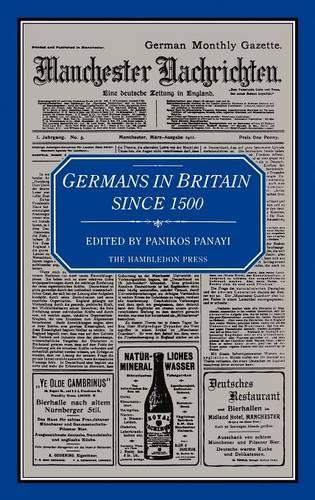
Germans in Britain Since 1500
(Hardback)
Publishing Details
Germans in Britain Since 1500
By (Author) Panikos Panayi
Bloomsbury Publishing PLC
Hambledon Continuum
1st June 2006
United Kingdom
Classifications
Tertiary Education
Non Fiction
European history
Civics and citizenship
Social and cultural history
941.00431
Physical Properties
Hardback
282
Width 156mm, Height 234mm
300g
Description
German-speaking people have always lived, either as temporary or as long-term residents in the British Isles. While the majority of the visitors arrived to pursue trade, others came for a wide variety of reasons. In the 16th century German reformers came to promote Protestantism. In 1714 the Elector of Hanover came because he had inherited the crown. In Victorian times Karl Marx came to write "Das Kapital" in the British Museum. The 19th century was perhaps the highpoint in the history of German settlement, with the establishment of wide-spread German communities and organizations. The First World War, and a combination of official and unofficial hostility, destroyed most of these communities. During the interwar years both Nazis and Jewish refugees from Nazism entered the country. Since the war, professionals have formed the basis of the German community. This volume traces the history of German settlement through a series of essays designed to cover each period and to analyze specific aspects. The work represents the history of an immigrant grouping in Britain over almost 500 years.
Author Bio
Panikos Panayi is Professor of European History at De Montfort University, UK. He is the author of Migrant City: A New History of London (2020) and, with Stefan Manz, Enemies in the Empire: Civilian Internment in the British Empire during the First World War (2020), among others.
